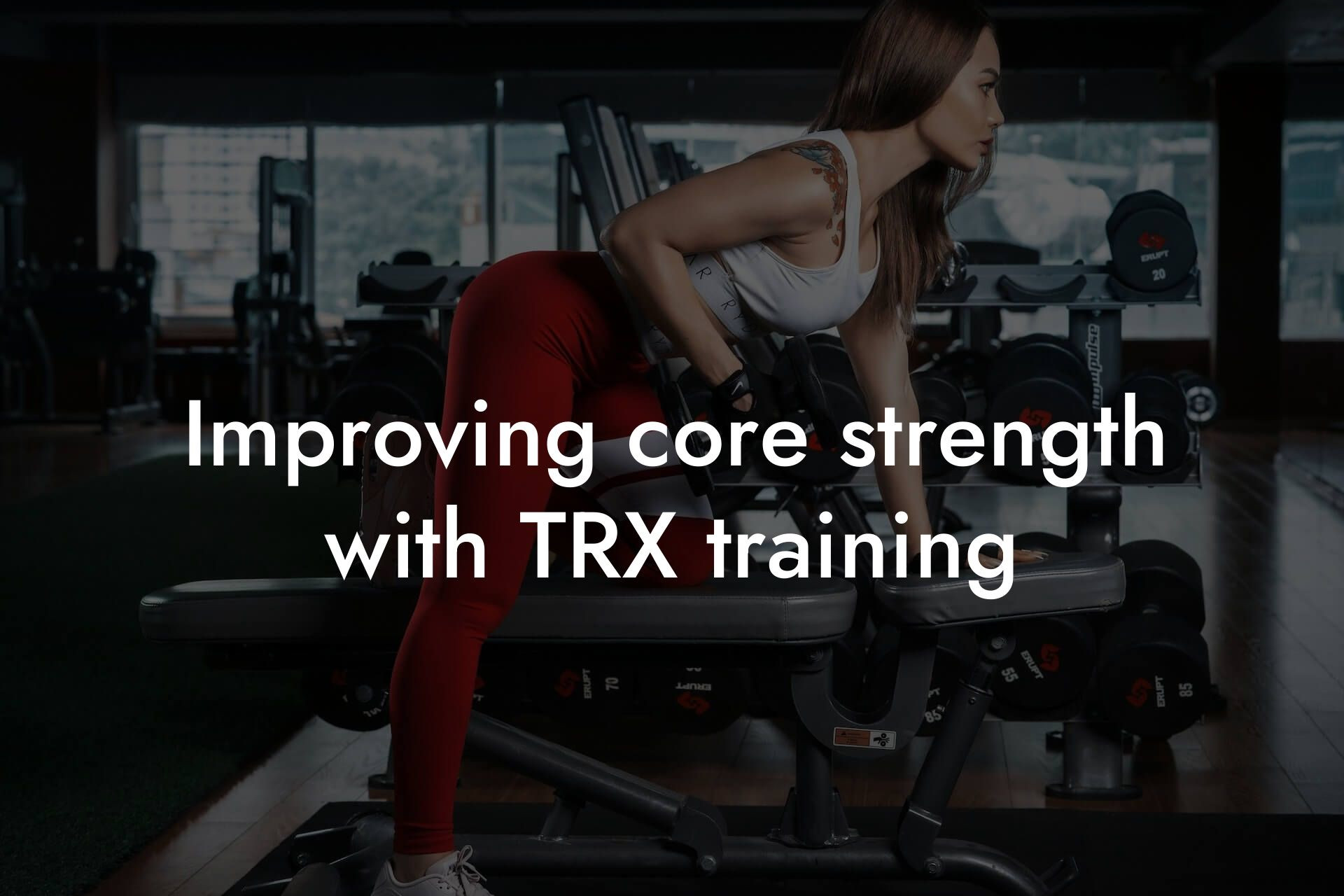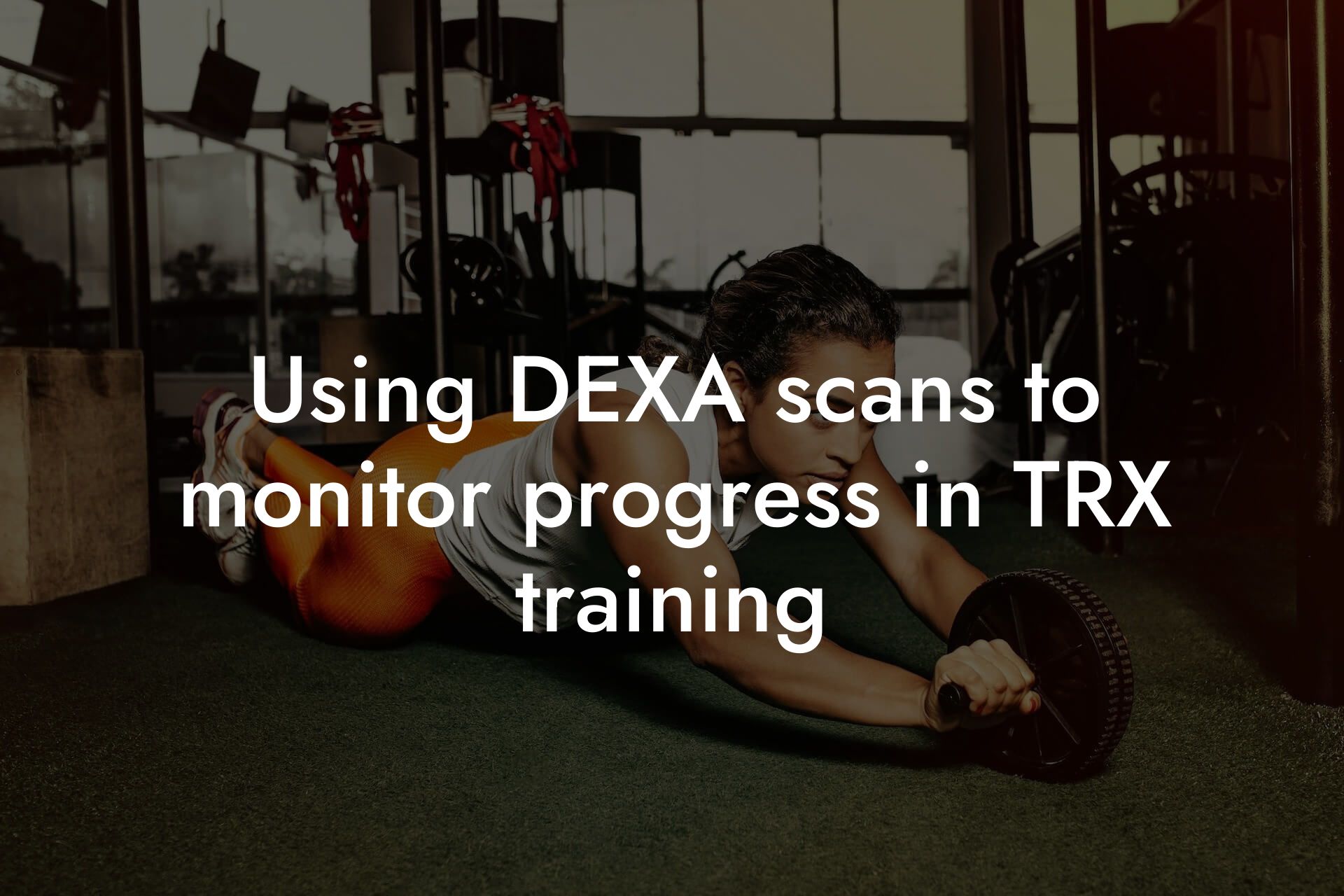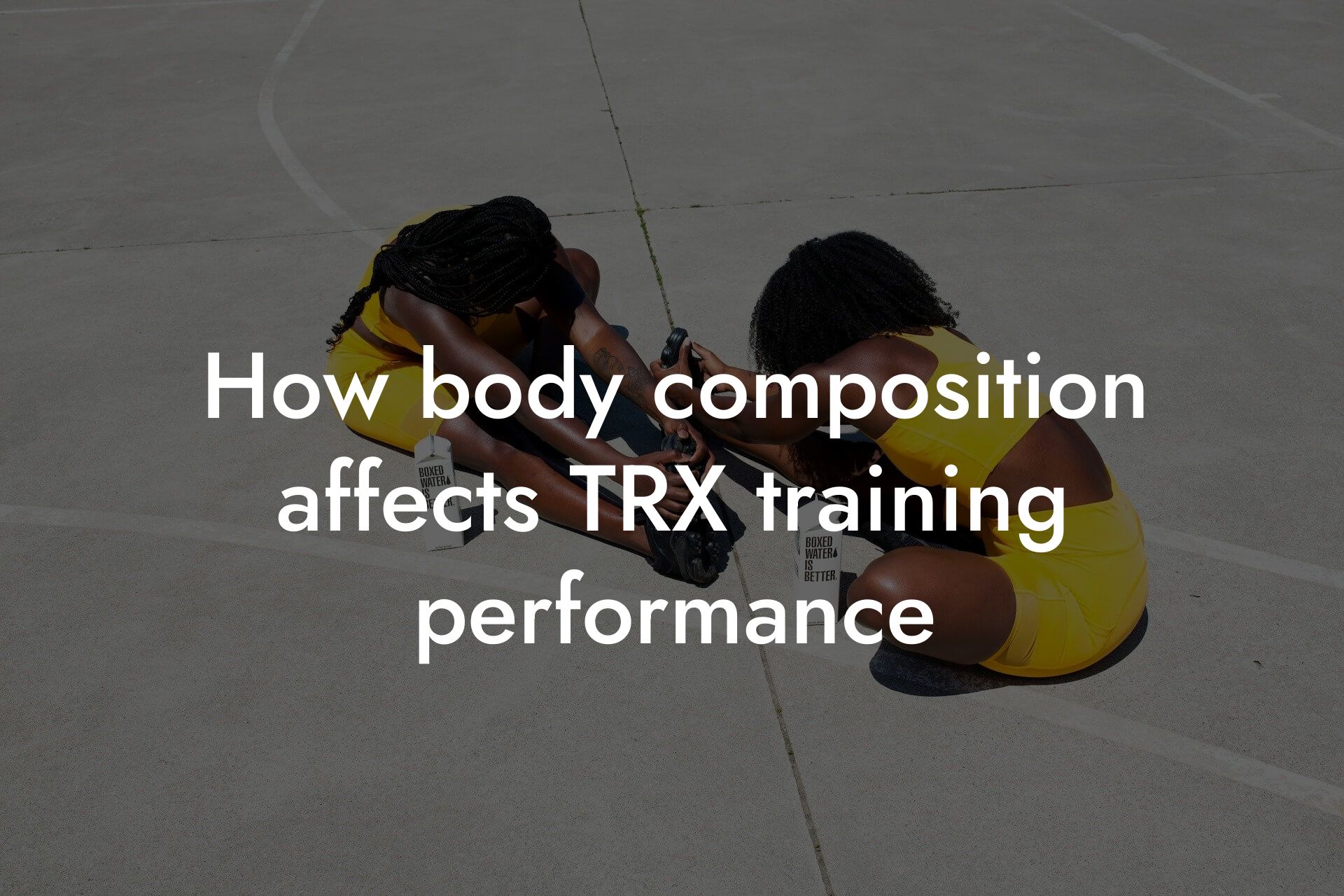As a high-earning professional, you understand the importance of maintaining a healthy and fit physique to take your business to the next level. TRX sessions are an excellent way to improve your overall fitness and physique, but they can be challenging and require sustained energy levels. In this article, we will provide you with essential nutrition tips to help you power through your TRX sessions and achieve your fitness goals.
Table of Contents
Understanding Your Energy Needs
Before we dive into the nutrition tips, it's essential to understand your energy needs during a TRX session. TRX training is a high-intensity workout that requires a combination of strength, endurance, and flexibility. A typical TRX session can last anywhere from 30 to 60 minutes, and during this time, your body relies heavily on carbohydrates, protein, and healthy fats for energy.
To optimize your energy levels, you need to fuel your body with the right nutrients before, during, and after your TRX session. This will help you perform at your best, reduce fatigue, and support muscle recovery.
Pre-TRX Nutrition
What you eat before your TRX session can significantly impact your energy levels and performance. Aim to eat a balanced meal that includes complex carbohydrates, lean protein, and healthy fats 1-2 hours before your workout. Here are some examples of pre-TRX meals:
- Oatmeal with banana, almond butter, and eggs
- Grilled chicken breast with sweet potato and avocado
- Whole-grain toast with scrambled eggs, spinach, and feta cheese
Additionally, make sure to stay hydrated by drinking plenty of water or a sports drink that contains electrolytes. Aim to drink at least 16-20 ounces of fluid 30 minutes before your workout.
Intra-TRX Nutrition
During your TRX session, it's essential to replenish your energy stores and prevent dehydration. Here are some intra-TRX nutrition tips:
- Drink water or a sports drink every 15-20 minutes to stay hydrated
- Consume a energy gel or chews that contain carbohydrates and electrolytes
- Eat a handful of nuts or dried fruits that are rich in healthy fats and carbohydrates
Remember, everyone's nutritional needs are different, so experiment with different intra-TRX snacks to find what works best for you.
Post-TRX Nutrition
After your TRX session, it's crucial to refuel your body with the right nutrients to support muscle recovery and growth. Aim to eat a meal that includes a combination of carbohydrates, protein, and healthy fats within 30-60 minutes after your workout. Here are some examples of post-TRX meals:
- Greek yogurt with berries, honey, and almonds
- Grilled chicken breast with quinoa and steamed vegetables
- Smoothie bowl with banana, protein powder, almond milk, and chia seeds
In addition to your meal, make sure to drink plenty of water or a sports drink to rehydrate your body.
Macronutrient Breakdown
When it comes to TRX training, it's essential to understand the macronutrient breakdown of your diet. Here's a general guideline to follow:
- Carbohydrates: 55-65% of your daily calories
- Protein: 20-25% of your daily calories
- Healthy Fats: 15-20% of your daily calories
By following this macronutrient breakdown, you'll be able to fuel your body with the right nutrients to support your TRX training.
Hydration Tips
Proper hydration is crucial for optimal performance during TRX training. Here are some hydration tips to follow:
- Drink at least 8-10 glasses of water per day
- Monitor your urine color to ensure it's pale yellow or clear
- Avoid caffeine and sugary drinks that can dehydrate you
- Drink a sports drink that contains electrolytes during long or intense TRX sessions
Electrolyte Balance
Electrolytes are essential for maintaining proper hydration and preventing muscle cramps during TRX training. Here are some electrolyte-rich foods to include in your diet:
- Bananas (potassium)
- Avocados (potassium)
- Nuts and seeds (magnesium)
- Fatty fish (sodium)
- Coconut water (electrolyte-rich beverage)
Meal Timing and Frequency
Meal timing and frequency play a crucial role in supporting your TRX training. Here are some tips to follow:
- Eat 3-5 main meals per day, spaced out every 3-4 hours
- Include 2-3 snacks in between meals to maintain energy levels
- Avoid eating heavy meals within 2 hours of your TRX session
- Experiment with different meal frequencies and timing to find what works best for you
By following these nutrition tips, you'll be able to optimize your energy levels, support muscle recovery, and take your TRX training to the next level. Remember to stay hydrated, listen to your body, and adjust your nutrition plan accordingly. At Tano Performance Group, we're committed to helping you achieve your fitness goals and take your business to the next level. Contact us today to learn more about our DEXA machine and how it can help you achieve your fitness goals.
Frequently Asked Questions
What is the importance of nutrition during TRX sessions?
Nutrition plays a crucial role in sustaining energy levels during TRX sessions. A well-balanced diet provides the necessary fuel for your body to perform at its best, allowing you to power through even the most challenging exercises. Proper nutrition also helps with recovery, reducing muscle soreness and fatigue.
What are the key nutrients I should focus on for sustained energy?
Focus on complex carbohydrates, lean proteins, and healthy fats. These nutrients provide sustained energy, support muscle function, and aid in recovery. Include foods rich in iron, vitamin D, and calcium in your diet to support energy production and bone health.
How can I ensure I'm getting enough complex carbohydrates?
Incorporate whole grains, fruits, and vegetables into your diet. These foods are rich in complex carbohydrates, which provide sustained energy and support digestive health. Aim to include a source of complex carbohydrates in every meal.
What are some examples of lean protein sources?
Lean protein sources include chicken, fish, turkey, tofu, lentils, and legumes. These foods are rich in protein, low in fat, and provide essential amino acids for muscle growth and repair.
How much water should I drink during TRX sessions?
Aim to drink at least 8-10 glasses of water per day, and make sure to drink water before, during, and after your TRX session. Proper hydration is essential for energy production, muscle function, and recovery.
What are some healthy snack options for pre-TRX sessions?
Opt for snacks rich in complex carbohydrates and lean proteins, such as bananas, apples, energy bars, and trail mix. Avoid sugary snacks and drinks that can cause energy crashes during your workout.
Can I consume caffeine before a TRX session?
Yes, but in moderation. Caffeine can provide a temporary energy boost, but excessive consumption can lead to energy crashes and dehydration. Limit your caffeine intake to 1-2 cups per day, and avoid consuming it within 2-3 hours of your TRX session.
How can I prevent muscle cramps during TRX sessions?
Muscle cramps can be prevented by staying hydrated, consuming electrolyte-rich foods and drinks, and incorporating magnesium and potassium-rich foods into your diet. Bananas, avocados, and nuts are excellent sources of these essential minerals.
What is the best way to fuel my body after a TRX session?
After a TRX session, consume a meal or snack that includes a mix of complex carbohydrates and lean proteins within 30-60 minutes. This helps with recovery, reduces muscle soreness, and supports muscle growth and repair.
Can I follow a vegan or vegetarian diet and still get enough protein for TRX sessions?
Absolutely! Plant-based protein sources such as legumes, lentils, tofu, and tempeh provide all the essential amino acids your body needs. Make sure to consume a variety of protein-rich foods to ensure you're getting enough protein for optimal performance.
How can I ensure I'm getting enough iron for energy production?
Incorporate iron-rich foods such as lean meats, fish, beans, lentils, and fortified cereals into your diet. Vitamin C can enhance iron absorption, so consume foods rich in vitamin C, such as citrus fruits and bell peppers, along with iron-rich foods.
What are some common nutrition mistakes to avoid during TRX sessions?
Avoid consuming high-sugar foods and drinks, excessive caffeine, and processed snacks that can cause energy crashes and dehydration. Also, avoid eating too close to your TRX session, as this can cause digestive discomfort and reduce performance.
How can I monitor my nutrition and energy levels during TRX sessions?
Keep a food diary to track your nutrition and energy levels. Monitor how different foods affect your performance, and adjust your diet accordingly. Also, pay attention to your body's hunger and fullness cues to ensure you're fueling your body optimally.
Can I consume protein shakes or supplements during TRX sessions?
Yes, but only if necessary. Protein shakes and supplements can provide a convenient source of protein, but whole foods should always be your primary source of nutrition. Consult with a registered dietitian or healthcare professional to determine if supplements are necessary for your specific needs.
How can I adjust my nutrition plan for high-intensity TRX sessions?
For high-intensity TRX sessions, focus on consuming more complex carbohydrates and lean proteins to provide sustained energy. Also, make sure to stay hydrated by drinking plenty of water before, during, and after your workout.
What are some healthy fat sources I should include in my diet?
Healthy fat sources include nuts, seeds, avocados, and olive oil. These foods provide sustained energy, support heart health, and aid in the absorption of essential vitamins and minerals.
Can I consume dairy products during TRX sessions?
Yes, but in moderation. Dairy products can provide a convenient source of protein and calcium, but excessive consumption can cause digestive discomfort and reduce performance. Choose low-fat or fat-free dairy products, and avoid consuming them too close to your TRX session.
How can I prevent digestive discomfort during TRX sessions?
Avoid consuming high-fiber or high-fat foods too close to your TRX session, as these can cause digestive discomfort. Also, stay hydrated by drinking plenty of water, and avoid consuming carbonated drinks that can cause bloating and discomfort.
What are some signs of inadequate nutrition during TRX sessions?
Signs of inadequate nutrition include fatigue, dizziness, muscle cramps, and poor performance. If you're experiencing these symptoms, reassess your nutrition plan and make adjustments as necessary to ensure you're fueling your body optimally.
Can I follow a keto diet and still perform well during TRX sessions?
A keto diet can be challenging to follow during TRX sessions, as it requires a high-fat diet that may not provide the necessary energy for high-intensity workouts. However, if you're adapted to a keto diet, make sure to consume enough complex carbohydrates and lean proteins to support energy production and muscle function.
How can I get personalized nutrition advice for my TRX sessions?
Consult with a registered dietitian or healthcare professional who specializes in sports nutrition. They can provide personalized nutrition advice based on your specific needs, goals, and dietary requirements.
What are some healthy meal ideas for post-TRX session recovery?
Healthy meal ideas for post-TRX session recovery include grilled chicken with quinoa and vegetables, salmon with sweet potatoes and green beans, and turkey and avocado wraps with mixed greens. Focus on consuming complex carbohydrates, lean proteins, and healthy fats to support recovery and muscle growth.
Here are some related articles you might love...
- Improving core strength with TRX training
- Using DEXA scans to monitor progress in TRX training
- How body composition affects TRX training performance
- Balancing strength and flexibility in TRX workouts
- The importance of bone density in TRX fitness
- Strength training tips specific to TRX exercises
- Reducing body fat for better TRX workout results
- Maintaining muscle recovery with TRX training
- Preventing injuries during TRX training
Zak Faulkner
Zak Faulkner is a leading authority in the realm of physical health and body composition analysis, with over 15 years of experience helping professionals optimise their fitness and well-being. As one the experts behind Tano Performance Group, Zak has dedicated his career to providing in-depth, science-backed insights that empower clients to elevate their physical performance and overall health.
With extensive knowledge of DEXA technology, Zak specializes in delivering comprehensive body assessments that offer precise data on body fat, muscle mass, bone density, and overall physique. His expertise enables individuals to make informed decisions and achieve their fitness goals with accuracy and confidence. Zak’s approach is rooted in a deep understanding of human physiology, combined with a passion for helping clients unlock their full potential through personalised strategies.
Over the years, Zak has earned a reputation for his commitment to excellence, precision, and client-focused service. His guidance is trusted by top professionals who demand the best when it comes to their health. Whether advising on fitness programs, nutritional strategies, or long-term wellness plans, Zak Faulkner’s insights are a valuable resource for anyone serious about taking their health and fitness to the next level.
At Tano Performance Group, Zak continues to lead our Content Team revolutionising how professionals approach their physical health, offering unparalleled expertise that drives real results.




